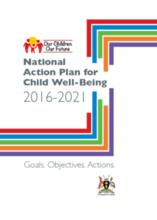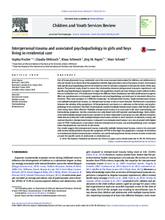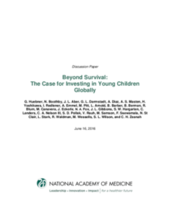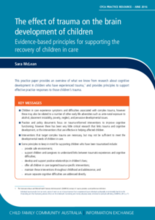Displaying 301 - 310 of 496
In this National Action Plan for Child Well-Being, Uganda spells out goals, plans, and actions it needs to take to improve child well-being in Uganda. The document points out that 62 percent of persons living in poverty are children. It notes that 33 percent of children under 5 are stunted, and it further states that only 37 percent of children make it to secondary education.
This paper presents findings from a doctoral project that explored the experiences of young people growing up in foster care in the United Kingdom.
The present study focused on whether parenting and family factors explain variance in cognitive and linguistic catch-up in children adopted internationally.
This study describes natural mentoring among preadolescent children placed in out-of-home care and examines the association between natural mentoring and demographic, maltreatment, placement, and psychosocial characteristics.
The present study aimed to assess the relationship between interpersonal traumatic experiences and specific psychopathological symptoms in a high-risk population of girls and boys living in youth welfare institutions in residential care.
The present study aimed to assess the relationship between interpersonal traumatic experiences and specific psychopathological symptoms in a high-risk population of girls and boys living in youth welfare institutions in residential care in Switzerland.
This paper from the U.S. National Academy of Medicine argues the importance of investment in early childhood development and serves as a call to action “to close the gap between what is known and what is done to support the development of children globally and, in turn, sustainable progress for communities and nations.”
This paper aims to address the role of future expectations among young people leaving care in the context of resilience theory and emerging adulthood theory.
The aim of the present paper is to systematically review the empirical studies that have analyzed the associations between poverty and cognitive development in children under 18 years of age from Latin American and Caribbean countries between 2000 and 2015.
This practice paper from the Australian Institute of Family Studies presents an overview of the research on the impacts of trauma on children’s brain development for children placed in out-of-home care and offers basic principles for responding to children’s trauma.




